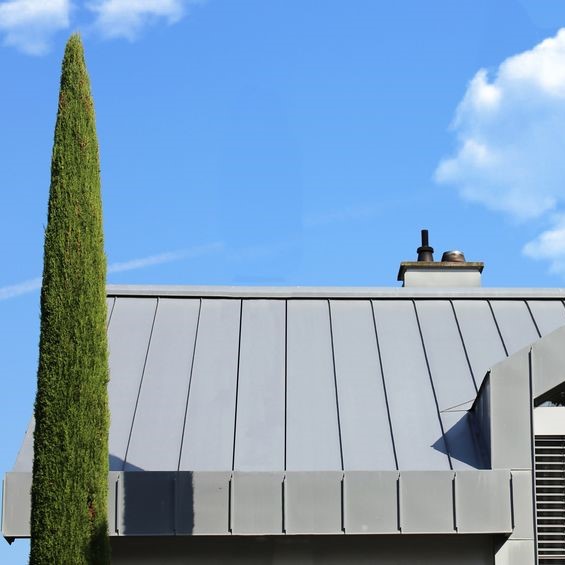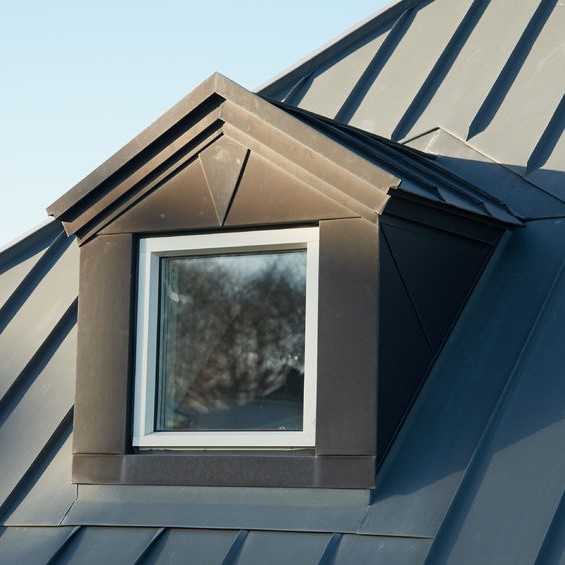
Do metal roofs make the house hotter?
Is it time for you to re-roof your house? Maybe since you’re going to that expense and trouble, you’re thinking about getting a new look with the new roof? Maybe metal roofing has crossed your mind? Metal roofing is growing in popularity on houses, and for many reasons. Still, there are still concerns and questions by homeowners about going with metal roofing for houses. We will try to answer some of those in this article.
There are many metal roofing benefits to be had, and we’ll cover those further into this article. For now, we will explain why metal roofing will not turn your house into an oven. They can modify metal roofs to deliver reflective properties and those will keep your house significantly cooler during the summer months. You can save on your monthly energy bill as much as 25% with metal roofing that has been professionally installed with adequate ventilation.
There is a big misunderstanding when it comes to metal roofing and their cool property value. In most people’s minds, metal means hot when the sun shines on it, but with certain factors at work, that proves to be a myth. Instead of absorbing it because it has a low thermal mass, metal roofing reflects heat and light and heat. Metal roofing cools down after the exterior temperature cools down and when combined with a specialized reflective coating that re-emits heat, the attic will stay distinctly cooler, and thus, your cooling system works less.
How much does a metal roof save on insurance?
When it comes to metal roofing or shingles, the benefits are way better for the homeowner, one which we just discussed, and for your insurance company. Metal roofing is impact resistant, unlike traditional asphalt roofing materials which deteriorate over time. Metal roofing is also fire resistant, which is another reason insurance companies love them. They love them so much that you could save up to 35% on your annual premiums.
Do you need gutters on a metal roof?
Yes, and no. Water is funneled by gutters from the roof to a drainage area, preventing that water from damaging rain, sleet, snow, and melting ice. Metal roofing can withstand no gutters, and your house will be fine. Your foundation and landscaping, however, will not.
Gutters are difficult to install on metal roofing, and if they aren’t installed properly, it can cause more damage than it prevents. A gutter system that is installed improperly on metal roofing can get ripped easily from heavy snow or heavy winds. Some homeowners will choose to forgo gutters because of that possibility.

What are the disadvantages of a metal roof?
Metal roofing has gained popularity because of the attractive option it offers homes, along with other benefits. The number one thing you need to make sure when choosing metal roofing and a contractor is the material is FM Global or UL tested. Some of the benefits that are selling homeowners on metal roofing are:
- Durable: Metal roofing has proven to sustain winds up to 140 miles per hour. They are UV ray resistant and won’t corrode or crack from exposure to the sun. The better grade of metal roofing you choose will prove to be impact-resistant, and they require minimal maintenance and upkeep. We recommend periodic inspection.
- Energy Efficient: Metal roofing reflects solar radiant heat and reduces cooling costs by as much as 25%.
- Environmentally Friendly: Metal roofing can be as much as 95% recycled content in manufacturing and 100% recyclable when they reach their life expectancy.
- Long Life Expectancy: Metal roofing can last up to 70 years versus the 20-year average of asphalt roofing.
- Safety Factor: Metal roofing is fire resistant.
Like anything, though, metal roofing has some disadvantages:
- Cost: Metal roofing cost as much as three times more than other roofing materials. Because of that initial investment, metal roofing isn’t recommended for a house that you’re buying to resale.
- Loud: Metal roofing can be noisy during a hailstorm or heavy rain, if not installed properly and the right amount of insulation. Because this can cause an increase in installation cost, many contractors and homeowners will cut corners in this area.
- Contract and Expand: they make metal roofing from large panels of metal, which contracts and expands with the temperature. This movement can loosen the fasteners used to install the metal roofing.
- Color Matching Inconsistent: If metal roofing needs repair, it’s difficult to match the color exactly.
- Performance. When metal roofing accumulates water, it typically is because of poor installation. When left to sit, it can create damage and with a low-grade metal, it can rust through and dent easily.
After getting quotes from professional metal roofing contractors, DIY homeowners may ask, “Can I install a metal roof myself? and the answer is yes. That answer would be followed up by this question: “Why would you want to?” because it isn’t worth the few dollars that you’ll save in labor to do it yourself.
However, if this is a personal bucket list thing, there are metal roofing systems for DIY installation, and you’ll find several videos online on how to do it. You want to be comfortable working at tall heights and with metal. There are specialty tools needed, which the online videos will review. Facts to consider if you do install your metal roofing yourself:
- The insurance company may not give as deep a discount if not installed by a professional.
- The manufacturer of the metal may not warranty the materials if not installed by a professional.
- There is no guarantee, or warranty provided by a contractor if you do your own installation.
Need metal roofing for your home in Philadelphia, PA? Call the Armour Seal Exteriors, Roofing, Masonry and Contracting experts at 267-622-7158 today!
